Mona Baker & Gabriela Saldanha. Routledge Encyclopedia of Translation Studies (2nd edition)
Подождите немного. Документ загружается.


Page281
(andunanswerable)thequestionofwhoorwhatisinfluencingtheiractions.For
Bourdieu,tolimitsocialscientificobservationtothepointofviewofagentsisto
treatagentsasinstrumentsofknowledge,leavingunexaminedtheobjective
structuresthathaveproducedthisknowledge.Hisultimateaimisnottogive
prioritytotheexplanationofthesocialscientistorthesocialactor,butto
apprehendthelimitsimposedonscientificknowledgeitself.InBourdieu’sview,
theselimitsdonotoriginateinsociallydeterminedsubjects,whetherinformants
orsocialanalysts,butinthesocialdeterminantsofdifferentformsofsocial
practice,includingsociologyitself.
NiklasLuhmannoffersaradicallydifferentviewofsociety,althoughlikeLatour
heconceivesofcontemporarysocietyintermsofcomplexitiesand
contingenciesratherthanasthesocialtotality(albeitbasedinstruggle)impliedin
Bourdieu’swork.ForbothLatourandLuhmann,thereisnooverarching,
integratingspacefromwherethedevelopmentofsocietycanbemeasuredor
coordinated.Luhmannelaboratesaviewofsocietythatisstructuredaccording
toaprincipleoffunctionaldifferentiation(Luhmann1985,1995,2006).The
worldisconstitutedbyamultiplicityoffunctionalsystems(e.g.law,finearts,
science,education,media)andwhathereferstoastheenvironments,
inhabitedbyhumansandnonhumansalike,thatsurroundthem.Incontrastto
Latour,however,Luhmann’stheoryreduceshumanindividualstomere
observers.Althoughsocialsystemsinteractwithenvironments,theyremain
essentiallyfreefromtheinfluenceofhumanactors.Functionalsystemsare
operationallyclosedandincommensurable;theyestablishandreproduce
themselvesautopoietically–i.e.theyareselfreferentialandselforganized–
drawingonpastandpresentresourcesfortheircontinuedexistence.
Interactionsbetweensystemandenvironment,whilstleavingthesystem’s
operationalclosureintact,can,however,setoffperturbationsorirritations,
whichmayprecipitatechangesinthesystem’sbehaviour.
CentraltoLuhmann’stheorizationofthesocialarehisviewsonmeaningand
whathereferstoascommunications.Drawingonphenomenology,Luhmann
suggeststhatsocialsystemsoperateinasimilarwayashumanmindsor
intentionalsubjects;theyprocessinformationalinputfromtheworldintheform
ofutterancesandthenselectwhatismeaningful.ForLuhmann,socialsystems
alsoprocessmeaningsselectively,effectivelyproducingthemselvesinand
throughcommunicationsjustasmindsproducethemselvesthroughthoughts.
Importantly,however,mindsandsystemsarekeptapartinLuhmann’sworld;
communicationsproduceonlycommunications.Communicationsproduce
themselvesbyencodinginbinarytermsothercommunicationsperceivedas
relevanttothesystem–forexample,intranslation,thehistoricalsource/target,
literal/freedichotomies–anddiscardingothersasmereirritations,unlessthese
areimportantenoughtoforcethesystemtoadjustitscodingorientations.Social
systemsdeveloprulesandregularitiessuchthat,intime,theybecomestructured
inpredictableways.Patternsofexpectationsbecomeestablishedwhich,
togetherwithhighlevelsofefficiencyandspecialization,allowthatsystemto
furtherdistinguishitselffromanother–thuscontributingtoandmaintainingboth
theirfunctionaldifferentiationandthecomplexcharacterofmodernsociety.
Translationscholarshaveexploredtherelevanceofthesetheoriestothefieldof
translationandinterpretinginanumberofways.Theseincludetherelationship
between,forexample,translatoragencyandsocialstructure,historical,social
andcognitiveprocesses,humanandnonhumanactors,andtranslation
products,processesandrelationsofpower.Theworkofthesetheoristshas
contributedtotheendeavourtomaketranslatorsandinterpretersmorevisible,
orinthecaseofLuhmann,invisibleassocialactors.Ithasalsoinformedthe
conceptualization,atboththetheoreticalandmethodologicallevel,ofempirical
researchdesignedtoexaminetranslationactivity,includingtraining,inthe
contextsofitsoccurrence.Bourdieu’swork,themostwidelydiscussedwithin
thefield,hasbeenappliedtoarangeofempiricalandtheoreticalissuesfrom
literaryandnonliterarytranslationtosignlanguageandpublicservice
interpreting(Simeoni1998;Gouanvic1997,1999,2001;Inghilleri2003,
2005a;Wolf2006;seealsothecollectionofarticlesinHeilbronandSapiro
2002;Inghilleri2005b).Latour’sActorNetworkTheoryhasbeentakenup
particularly,
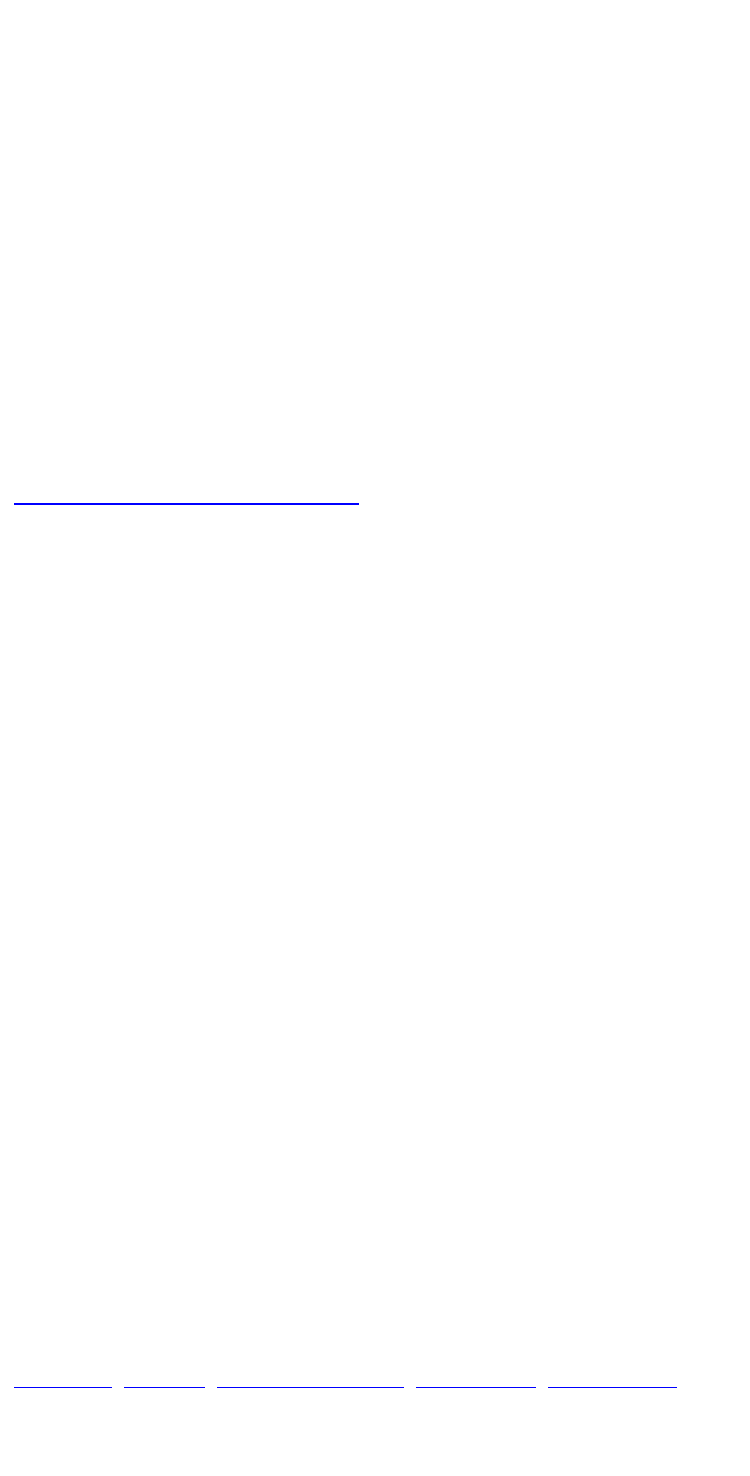
Page282
thoughnotexclusively,totheorizethetranslationprocessfromtheperspectives
oftheactorsinvolved,includingthepivotalroleoftranslatorsthemselves
(Buzelin2005).Luhmann’stheoryhasbeenusedtoconceptualizetranslation
itselfasafunctionallydifferentiatedsystem,toexploretheselfreferentialnature
oftranslationcommunicationsasmetacommunicationsandtoexaminethe
autonomousrelationshipbetweentranslatortrainingandprofessionalpractice
(Hermans2007).
Theseemergentsociologicalperspectivesconstitutebothanewdirectionfor
workinthefieldoftranslationandapotentialshiftintherelationshipbetween
thisfieldandthesocialsciences.Sociologicalperspectiveshaveexpandedthe
focusofanalysisbeyondliterarytextstoincludenonliteraryandspokenand
signedtexts.Theyhavehighlightedthecentralpositionoftranslatorsand
interpretersthemselvesinthetranslationprocess.Andunlike
FUNCTIONALISTAPPROACHES,wheretheanalysisofthetranslator’s
roleisconcernedtodescribethispositioninlargelyneutraltermswithinawider
functionalnetwork,sociologicalapproacheshaveidentifiedtranslators’
professionaltrajectoriesandsocialpositioningsascrucialtoboththeprocess
andproductsoftranslationactivity.
Thedevelopinginterestinsociologicalperspectiveswithintranslationstudies
researchmayalsoimpactondiscussionstakingplacewithinthesocialsciences
morebroadly.Theroleofsocialtheoryintheanalysisofcontemporarysociety
hascomeunderincreasingscrutinyasthevisibleandinvisiblefactorsthatshape
individualandcollectivelivesappeartosometodefytraditionalsociologicalor
philosophicalattemptstocategorize,stabilizeortransformsocialphenomena.
Theemergentsociologicalperspectivesintranslationandinterpretingresearch
arereflectiveofsignificantlydistinctiveepistemologicalandontologicalpositions
withregardtowhatconstitutesknowledgeandunderstandingoftheworldand
howsocialtheoristscanbestinterveneinorcommentonit.Latourand
Luhmannargueforbetterobservationanddescriptionofmultiple,autonomous
socialrealitieswhileBourdieuwouldsupportthepossibilityandvalidityofa
transformativeagendaforsociologythroughdescriptionandscientific
explanation.Thesedifferenceshaveimplicationsforwhatformofintervention
eachbelievessocialtheorycanorshouldmakeincomplexcontemporary
societies.Translationscholarsundertakingworkinsocioculturalorsociological
researchparadigmsdealdirectlywiththeseissuesintheirfocusontheroleof
translationandmultiplemeaningsinthemulticulturalandmultilingualsettingsthat
comprisemodernsocialsystems.Translationresearchinthisarea,therefore,
hasthepotentialtoplayacriticalroleincurrentdebatesinthesocialsciences
aboutmodernityandtheinevitabilityofdifferentiation,contingencyand
incommensurabilityincontemporarysociallife.
Seealso:
ASYLUM;ETHICS;GLOBALIZATION;IDEOLOGY;REWRITING.
Furtherreading
Gouanvic1997;Simeoni1998;Casanova1999/2005;Heilbron1999;
HeilbronandSapiro1999;Gouanvic2002;Inghilleri2003,2005a,2005b;
Buzelin2005;Wolf2006.
MOIRAINGHILLERI
Strategies
Theterm‘strategy’connotesateleologicalcourseofactionundertakento
achieveaparticulargoalinanoptimalway.Problemsarise,however,indefining
theconceptmoreprecisely.AsChesterman(2005)hasnoted,notonlyisthe
term‘strategy’itselfoftenusedindifferentwaysintranslationstudies,buta
varietyofothertermscanbeusedtomeanthesamething:‘procedures’,
‘techniquesofadjustment’,‘transformations’,‘transferoperations’etc.Molina
andHurtadoAlbir(2002:507)observetwodifferentstrandsindefinitionsof
‘translationstrategy’:(a)theproceduralsense(oftenusedbythoseinvestigating
PSYCHOLINGUISTICANDCOGNITIVEAPPROACHEStotranslating),
and(b)thetextualsense.Thedistinctionhereismetonymicofthegreater
distinctionwhichsomehaveproposedbetweenprospectiveandretrospective
translationstudies(Koster2002:27;Wilss1977:67).
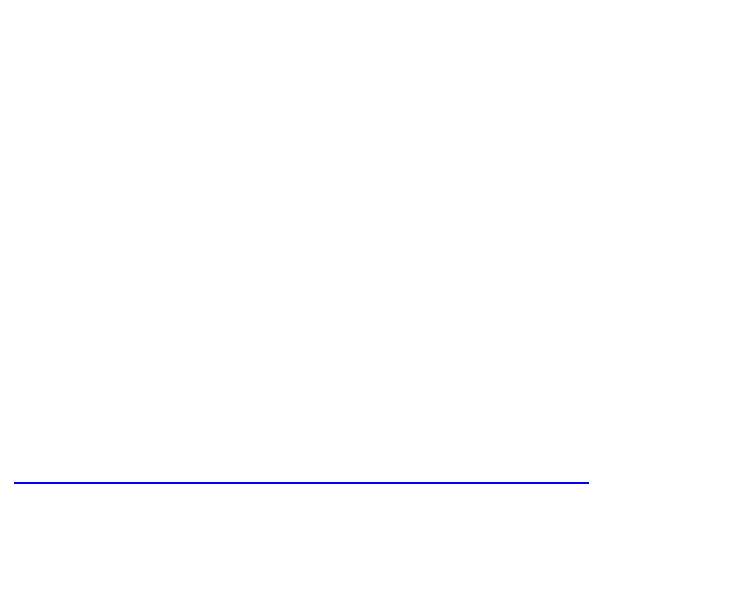
Page282
thoughnotexclusively,totheorizethetranslationprocessfromtheperspectives
oftheactorsinvolved,includingthepivotalroleoftranslatorsthemselves
(Buzelin2005).Luhmann’stheoryhasbeenusedtoconceptualizetranslation
itselfasafunctionallydifferentiatedsystem,toexploretheselfreferentialnature
oftranslationcommunicationsasmetacommunicationsandtoexaminethe
autonomousrelationshipbetweentranslatortrainingandprofessionalpractice
(Hermans2007).
Theseemergentsociologicalperspectivesconstitutebothanewdirectionfor
workinthefieldoftranslationandapotentialshiftintherelationshipbetween
thisfieldandthesocialsciences.Sociologicalperspectiveshaveexpandedthe
focusofanalysisbeyondliterarytextstoincludenonliteraryandspokenand
signedtexts.Theyhavehighlightedthecentralpositionoftranslatorsand
interpretersthemselvesinthetranslationprocess.Andunlike
FUNCTIONALISTAPPROACHES,wheretheanalysisofthetranslator’s
roleisconcernedtodescribethispositioninlargelyneutraltermswithinawider
functionalnetwork,sociologicalapproacheshaveidentifiedtranslators’
professionaltrajectoriesandsocialpositioningsascrucialtoboththeprocess
andproductsoftranslationactivity.
Thedevelopinginterestinsociologicalperspectiveswithintranslationstudies
researchmayalsoimpactondiscussionstakingplacewithinthesocialsciences
morebroadly.Theroleofsocialtheoryintheanalysisofcontemporarysociety
hascomeunderincreasingscrutinyasthevisibleandinvisiblefactorsthatshape
individualandcollectivelivesappeartosometodefytraditionalsociologicalor
philosophicalattemptstocategorize,stabilizeortransformsocialphenomena.
Theemergentsociologicalperspectivesintranslationandinterpretingresearch
arereflectiveofsignificantlydistinctiveepistemologicalandontologicalpositions
withregardtowhatconstitutesknowledgeandunderstandingoftheworldand
howsocialtheoristscanbestinterveneinorcommentonit.Latourand
Luhmannargueforbetterobservationanddescriptionofmultiple,autonomous
socialrealitieswhileBourdieuwouldsupportthepossibilityandvalidityofa
transformativeagendaforsociologythroughdescriptionandscientific
explanation.Thesedifferenceshaveimplicationsforwhatformofintervention
eachbelievessocialtheorycanorshouldmakeincomplexcontemporary
societies.Translationscholarsundertakingworkinsocioculturalorsociological
researchparadigmsdealdirectlywiththeseissuesintheirfocusontheroleof
translationandmultiplemeaningsinthemulticulturalandmultilingualsettingsthat
comprisemodernsocialsystems.Translationresearchinthisarea,therefore,
hasthepotentialtoplayacriticalroleincurrentdebatesinthesocialsciences
aboutmodernityandtheinevitabilityofdifferentiation,contingencyand
incommensurabilityincontemporarysociallife.
Seealso:
ASYLUM;ETHICS;GLOBALIZATION;IDEOLOGY;REWRITING.
Furtherreading
Gouanvic1997;Simeoni1998;Casanova1999/2005;Heilbron1999;
HeilbronandSapiro1999;Gouanvic2002;Inghilleri2003,2005a,2005b;
Buzelin2005;Wolf2006.
MOIRAINGHILLERI
Strategies
Theterm‘strategy’connotesateleologicalcourseofactionundertakento
achieveaparticulargoalinanoptimalway.Problemsarise,however,indefining
theconceptmoreprecisely.AsChesterman(2005)hasnoted,notonlyisthe
term‘strategy’itselfoftenusedindifferentwaysintranslationstudies,buta
varietyofothertermscanbeusedtomeanthesamething:‘procedures’,
‘techniquesofadjustment’,‘transformations’,‘transferoperations’etc.Molina
andHurtadoAlbir(2002:507)observetwodifferentstrandsindefinitionsof
‘translationstrategy’:(a)theproceduralsense(oftenusedbythoseinvestigating
PSYCHOLINGUISTICANDCOGNITIVEAPPROACHEStotranslating),
and(b)thetextualsense.Thedistinctionhereismetonymicofthegreater
distinctionwhichsomehaveproposedbetweenprospectiveandretrospective
translationstudies(Koster2002:27;Wilss1977:67).
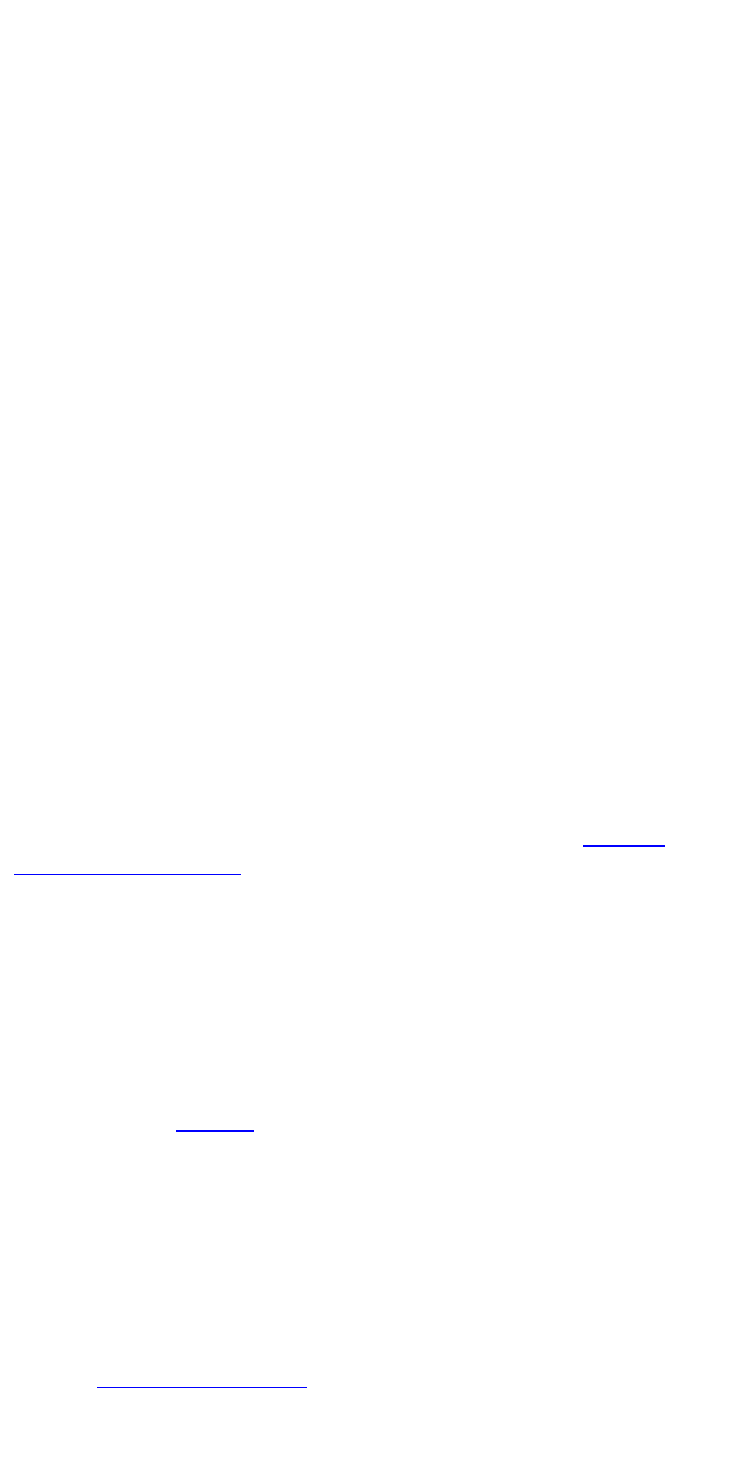
Page283
Proceduralandtextualstrategies
Agoodexampleoftheuseof‘strategy’inthe‘procedural’sensemaybefound
inLörscher(1991:68–81),whodistinguishesstrategiesfrom‘methods’(which
arelesssubjecttoindividualcircumstances),‘rules’(whicharemoresocially
prescriptive),‘tactics’(whicharelesssequential)and‘plans’(whicharemore
concernedwithmentalrepresentationthanwithproceduralknowledge).With
regardtotheselasttwodistinctions,itshouldbenotedthatsomecommentators
differfromLörscher,forexampleinseeingstrategiesasasubcategoryoftactics
(vanDijkandKintsch1983:66)orofplans(FærchandKasper1980:60).
Lörscheriskeentobreakwithearlierprescriptivistaccounts(e.g.Hönigand
Kuβmaul1982)bydevelopingadescriptivedefinitionofatranslationstrategy
as‘apotentiallyconsciousprocedureforthesolutionofaproblemwhichan
individualisfacedwithwhentranslatingatextsegmentfromonelanguageinto
another’(1991:76).Asmentalphenomena,strategiesinthissenseare
themselvesunobservable,althoughtheymaybereconstructedbyresearchers
throughanalysisofstrategyindicators.SinceLörscher’sstudy,thenotionof
‘strategy’hasgainedgreatercurrencyintranslationstudiesparlance,particularly
giventheriseininterestinempiricalresearchintotranslationproceduresinthe
1990s.Muchoftheworkontranslationstrategieshassincefocusedspecifically
ontheirroleinsolvingtranslation‘problems’,thoughthisinitselfbegsthe
questionofwhatconstitutessuchaprobleminthefirstplace.AsChesterman
notes,‘AproblemfortranslatorXmaynotbeaproblemfortranslatorY;but
bothtranslatorsmayarriveatthesamesolution’(2005:21).Wouldwethensay
thattranslatorXhadusedastrategybutYhadnot?Lörscherconcedesthat
researchersanalysingempiricaldataofstrategyindicators(e.g.THINK
ALOUDPROTOCOLS)mustproceedspeculativelyandhypothetically:‘They
oftendonotinterpretsignstobeindicatorsbecausetheyknowtherespective
entity,i.e.thestrategy,butratheronthebasisofconsiderationsof
probability’(Lörscher2005:599).
Aseconduseofthetermstrategy,referredtohereas‘textual’,appliesto
descriptionsoftheresultsofproceduresratherthantheproceduresthemselves.
Thechoiceof‘strategy’torefertothisphenomenonagainappearstobefairly
recent,withearlierstudiesspeakingof‘procedures’(VinayandDarbelnet
1995/1958)and‘SHIFTS’(Catford1965;Popovič1970)betweensource
andtargettexts.Chesterman(2005:20)suggeststhat,inEnglish,confusionin
theuseof‘strategy’torefertobothproceduresandtheirresultsmaybea
consequenceofthefactthatmanywordsusedtodescribetextualtranslation
proceduresarenominalizationsofverbs:‘compensation’,‘omission’,etc.Yet
thediscussionofstrategiesalongtheselines(asevidencedintextssuchas
Hatim2001:87–96;Munday2001:121–3;andHatimandMunday2004)
generallyfollowsverydifferentlinesofenquirytoproceduraldiscussionsof
strategies,andtendstofocusonthefree/literaltranslationdichotomyoron
issuesofTRANSLATABILITY.
Localandglobalstrategies
Anotherpervasivedivisionisthatbetween‘local’and‘global’strategies
(Jääskeläinen1993:115–16;Séguinot1989;Lörscher1991:71).‘Local
strategies’relatespecificallytothetranslationofparticularlanguagestructures
andlexicalitems,while‘globalstrategies’operateatamoregeneralleveland
pertaintobroadquestionsoftextualstyleandthechoicebetweensuppressing
oremphasizingspecificaspectsofthesourcetext.Thisdivisionisnot
uncontroversial,withChestermaninparticularrecantingonhisearlieruseofit
becauseitgivesriseto(orperhapsfailstoresolve)theambiguitybetween
proceduralandtextualsenses(2005:22,withreferencetohisearlierdiscussion
1997:90).
Inhisclassificationof(mainlylocal)translationstrategies,Chesterman(1997),
drawingonGile(1992,1995a),distinguishesbetween‘comprehension
strategies’(relatingtothecognitiveanalysisofthesourcetext)and‘production
strategies’(relatingtotheproductionofthetargettext).Whilesomeresearch
existsontranslationcomprehensionstrategies(e.g.KupschLosereit2000),
scholarshavedevotedfargreaterattentiontoproductionstrategies,with
detailedclassificationsbeingproposedby,amongothers,VinayandDarbelnet
(1958/1995),Nida(1964),Catford(1965),Malone(1988),vanLeuven
Zwart(1989/1990a),andChesterman(1997).Oftenthedevelopmentof
production

Page283
Proceduralandtextualstrategies
Agoodexampleoftheuseof‘strategy’inthe‘procedural’sensemaybefound
inLörscher(1991:68–81),whodistinguishesstrategiesfrom‘methods’(which
arelesssubjecttoindividualcircumstances),‘rules’(whicharemoresocially
prescriptive),‘tactics’(whicharelesssequential)and‘plans’(whicharemore
concernedwithmentalrepresentationthanwithproceduralknowledge).With
regardtotheselasttwodistinctions,itshouldbenotedthatsomecommentators
differfromLörscher,forexampleinseeingstrategiesasasubcategoryoftactics
(vanDijkandKintsch1983:66)orofplans(FærchandKasper1980:60).
Lörscheriskeentobreakwithearlierprescriptivistaccounts(e.g.Hönigand
Kuβmaul1982)bydevelopingadescriptivedefinitionofatranslationstrategy
as‘apotentiallyconsciousprocedureforthesolutionofaproblemwhichan
individualisfacedwithwhentranslatingatextsegmentfromonelanguageinto
another’(1991:76).Asmentalphenomena,strategiesinthissenseare
themselvesunobservable,althoughtheymaybereconstructedbyresearchers
throughanalysisofstrategyindicators.SinceLörscher’sstudy,thenotionof
‘strategy’hasgainedgreatercurrencyintranslationstudiesparlance,particularly
giventheriseininterestinempiricalresearchintotranslationproceduresinthe
1990s.Muchoftheworkontranslationstrategieshassincefocusedspecifically
ontheirroleinsolvingtranslation‘problems’,thoughthisinitselfbegsthe
questionofwhatconstitutessuchaprobleminthefirstplace.AsChesterman
notes,‘AproblemfortranslatorXmaynotbeaproblemfortranslatorY;but
bothtranslatorsmayarriveatthesamesolution’(2005:21).Wouldwethensay
thattranslatorXhadusedastrategybutYhadnot?Lörscherconcedesthat
researchersanalysingempiricaldataofstrategyindicators(e.g.THINK
ALOUDPROTOCOLS)mustproceedspeculativelyandhypothetically:‘They
oftendonotinterpretsignstobeindicatorsbecausetheyknowtherespective
entity,i.e.thestrategy,butratheronthebasisofconsiderationsof
probability’(Lörscher2005:599).
Aseconduseofthetermstrategy,referredtohereas‘textual’,appliesto
descriptionsoftheresultsofproceduresratherthantheproceduresthemselves.
Thechoiceof‘strategy’torefertothisphenomenonagainappearstobefairly
recent,withearlierstudiesspeakingof‘procedures’(VinayandDarbelnet
1995/1958)and‘SHIFTS’(Catford1965;Popovič1970)betweensource
andtargettexts.Chesterman(2005:20)suggeststhat,inEnglish,confusionin
theuseof‘strategy’torefertobothproceduresandtheirresultsmaybea
consequenceofthefactthatmanywordsusedtodescribetextualtranslation
proceduresarenominalizationsofverbs:‘compensation’,‘omission’,etc.Yet
thediscussionofstrategiesalongtheselines(asevidencedintextssuchas
Hatim2001:87–96;Munday2001:121–3;andHatimandMunday2004)
generallyfollowsverydifferentlinesofenquirytoproceduraldiscussionsof
strategies,andtendstofocusonthefree/literaltranslationdichotomyoron
issuesofTRANSLATABILITY.
Localandglobalstrategies
Anotherpervasivedivisionisthatbetween‘local’and‘global’strategies
(Jääskeläinen1993:115–16;Séguinot1989;Lörscher1991:71).‘Local
strategies’relatespecificallytothetranslationofparticularlanguagestructures
andlexicalitems,while‘globalstrategies’operateatamoregeneralleveland
pertaintobroadquestionsoftextualstyleandthechoicebetweensuppressing
oremphasizingspecificaspectsofthesourcetext.Thisdivisionisnot
uncontroversial,withChestermaninparticularrecantingonhisearlieruseofit
becauseitgivesriseto(orperhapsfailstoresolve)theambiguitybetween
proceduralandtextualsenses(2005:22,withreferencetohisearlierdiscussion
1997:90).
Inhisclassificationof(mainlylocal)translationstrategies,Chesterman(1997),
drawingonGile(1992,1995a),distinguishesbetween‘comprehension
strategies’(relatingtothecognitiveanalysisofthesourcetext)and‘production
strategies’(relatingtotheproductionofthetargettext).Whilesomeresearch
existsontranslationcomprehensionstrategies(e.g.KupschLosereit2000),
scholarshavedevotedfargreaterattentiontoproductionstrategies,with
detailedclassificationsbeingproposedby,amongothers,VinayandDarbelnet
(1958/1995),Nida(1964),Catford(1965),Malone(1988),vanLeuven
Zwart(1989/1990a),andChesterman(1997).Oftenthedevelopmentof
production
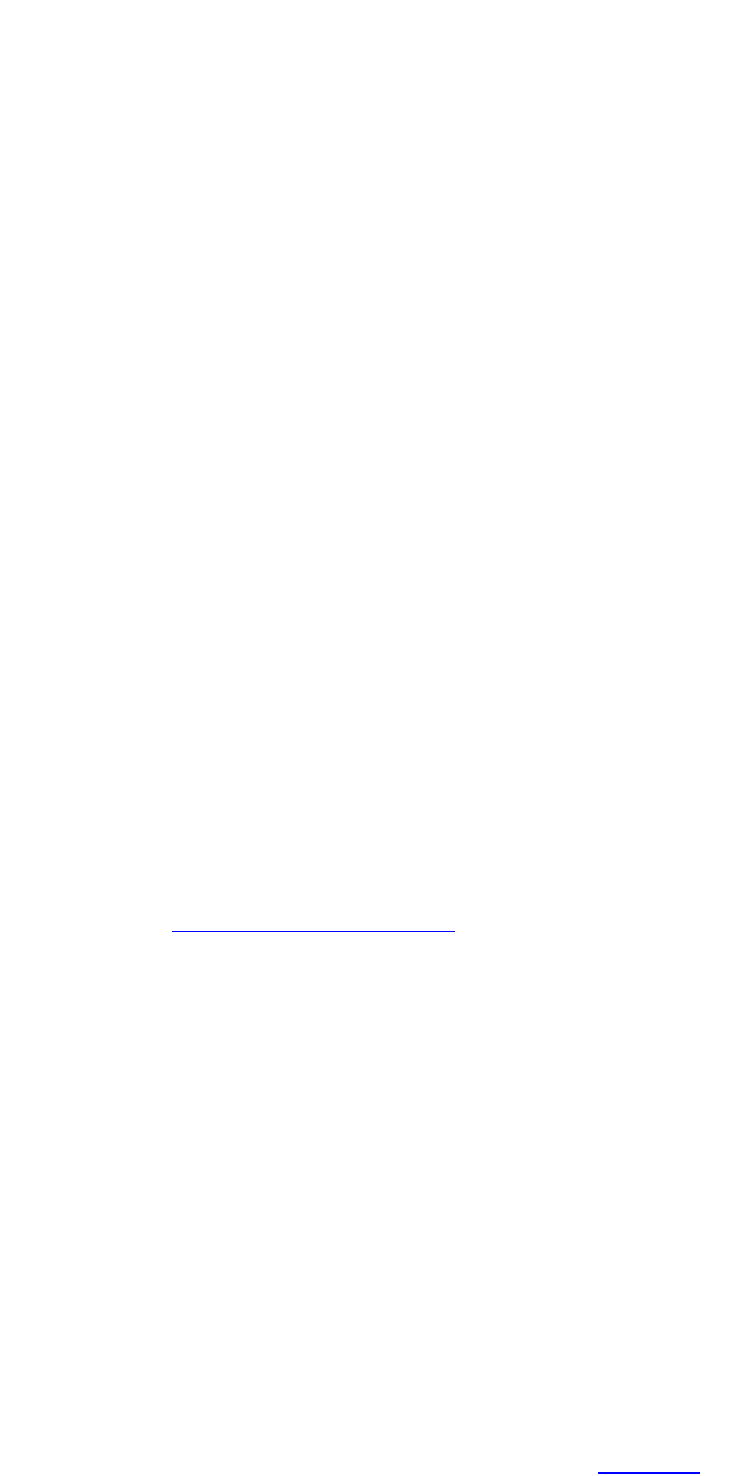
Page284
strategiesatthislevelisexplicitlydidactic(e.g.Kiraly1995;Kuβmaul1995;
Piotrowska2002).Chesterman(1997:92–112)proposesthatsuchstrategies
canlargelybedividedintothree(somewhatoverlapping)categoriesof
syntactic/grammaticalstrategies(involvingpurelysyntacticchangesofonekind
oranother,e.g.literaltranslation,loans/calques,phraseandsentencestructure
changes,etc.),semanticstrategies(changesmainlyrelatingtolexicalsemantics
andclausemeaning,e.g.synonomy,antonymy,paraphraseandtropechanges)
andpragmaticstrategies(involvingselectionofinformationintheTTgoverned
bythetranslator’sknowledgeoftheprospectivereadershipofthetranslation,
e.g.culturalfiltering,informationchanges,illocutionarychanges,partial
translation,transediting,etc.).Theoftenradicalreorganizationsoftextual
arrangementresultingfrompragmaticstrategiesmightleadonetoconsiderthem
tobemoreakintoglobalstrategies.
WriterslikeLörscher(1991,2005)andMuñozMartin(2000:130)contend
thattranslationstrategiesrefertospecificinstancesinthetranslationoftext
segments;thiswouldinitiallyappeartoprecludediscussionofmoreglobal
strategiesofthekindwhichhaveconcernedwriterslikeVenuti(1995a,1998b).
Nevertheless,considerationofsuchissuesinstrategictermshasexertedamajor
influenceintranslationstudiesinrecentyears.
Whileitmightseemunusualtoconsiderinstrategictermsthedecisionof
whethertotranslateornottotranslateatext,thepracticesofcertaintranslators
demonstratehowsuchanissuemayservetofurtherinformthetranslator’s
activity.SusannedeLotbinièreHarwood’sdecision,basedonbroadlyfeminist
grounds,nottotranslateanymoremalepoetsfollowinghertranslationofLucien
Francoeurappearsmorestrategicwhenitisseenasacknowledgingadifferent
relationshipbetweenwomenandlanguage,arelationshipwhichitselfgoesonto
influenceherfurthertranslations(deLotbinièreHarwood1995:64;Simon
1996:31–2)(seeGENDERANDSEXUALITY).Similarly,recentyearshave
seentheriseofgroupsoftranslatorssuchasBabels,TranslatorsforPeace,and
theTranslators’andInterpreters’PeaceNetworkwhichengageintranslation
withexplicitlyhumanitarianandpoliticalagendasattheoutset,agendaswhich
exertamajorinfluenceontheirtranslationpractice(Baker2006b).Again,since
theseagendasimpingeonfarmorethanjustthetranslationof‘textsegments’,
discussionofthesegroups’workintermsofglobalstrategiesmaybelargely
withoutprecedent.Nevertheless,theensuingpraxisproducestargettextswhich
areshapedbyconsciousandcoherentseriesoflanguagemediationtacticsthat
areconsonantwithmostscholars’understandingofstrategies.
Arguably,thekeyhistoricaldichotomywhichhasdominatedthinkingabout
globaltranslationstrategies–andindeedmuchofthegeneraldiscourseon
translationtheoryuptothelatetwentiethcentury–hasbeenthatof‘literal’vs.
‘free’translation.Thisdivisionhasbeenexpressedinmanydifferentwaysdown
throughhistory,fromStJerome’sespousalofthe‘senseforsense’approach
tomorerecentdistinctionsbetween‘formal’and‘dynamic’equivalence(Nida
1964:159–77),‘semantic’and‘communicative’translation(Newmark
1981:38–56),‘documentary’and‘instrumental’translation(Nord1991a:72–
3),‘overt’and‘covert’translation(House1981,1997;seealsoQUALITY),
andothers(forafullerlistandmoredetaileddiscussion,seeKwieciński2001).
Alloftheseoppositionsrelatetothedegreetowhichstrategiesmayinvolve
manipulatingasourcetextinitstransitiontoatargettext,withtheextentofthis
manipulationoftenbeingdeterminedbytherelationshipoftargettextreceivers
tothesourceculture.Perhapsasaresultofitsdominanceoversuchalong
periodinthehistoryoftranslationtheoryandcriticism,the‘literalvs.free’
debatehasbeencriticizedforbeingrelativelyunfruitfulintheconsiderationof
translationstrategiesandforoversimplifyingacomplexissuewithblunt
dichotomousanalysis(Steiner1975/1992).
Inrecentyears,theworkofLawrenceVenutihasbeeninfluentialintheareaof
globaltranslationstrategies,particularlyinhisconsiderationof‘foreignizing’and
‘domesticating’translationstrategies(Venuti1995a).Venutiderivestheseterms
fromhisreadingofSchleiermacher’sfamousdiscussionofthetranslator’s
choicebetweenmovingthereadertowardstheauthorortheauthortowardsthe
reader(Schleiermacher1977b:74,quotedinVenuti1991:129).
Schleiermacher’sespousaloftheformerissupportedalsobyVenuti,who

Page284
strategiesatthislevelisexplicitlydidactic(e.g.Kiraly1995;Kuβmaul1995;
Piotrowska2002).Chesterman(1997:92–112)proposesthatsuchstrategies
canlargelybedividedintothree(somewhatoverlapping)categoriesof
syntactic/grammaticalstrategies(involvingpurelysyntacticchangesofonekind
oranother,e.g.literaltranslation,loans/calques,phraseandsentencestructure
changes,etc.),semanticstrategies(changesmainlyrelatingtolexicalsemantics
andclausemeaning,e.g.synonomy,antonymy,paraphraseandtropechanges)
andpragmaticstrategies(involvingselectionofinformationintheTTgoverned
bythetranslator’sknowledgeoftheprospectivereadershipofthetranslation,
e.g.culturalfiltering,informationchanges,illocutionarychanges,partial
translation,transediting,etc.).Theoftenradicalreorganizationsoftextual
arrangementresultingfrompragmaticstrategiesmightleadonetoconsiderthem
tobemoreakintoglobalstrategies.
WriterslikeLörscher(1991,2005)andMuñozMartin(2000:130)contend
thattranslationstrategiesrefertospecificinstancesinthetranslationoftext
segments;thiswouldinitiallyappeartoprecludediscussionofmoreglobal
strategiesofthekindwhichhaveconcernedwriterslikeVenuti(1995a,1998b).
Nevertheless,considerationofsuchissuesinstrategictermshasexertedamajor
influenceintranslationstudiesinrecentyears.
Whileitmightseemunusualtoconsiderinstrategictermsthedecisionof
whethertotranslateornottotranslateatext,thepracticesofcertaintranslators
demonstratehowsuchanissuemayservetofurtherinformthetranslator’s
activity.SusannedeLotbinièreHarwood’sdecision,basedonbroadlyfeminist
grounds,nottotranslateanymoremalepoetsfollowinghertranslationofLucien
Francoeurappearsmorestrategicwhenitisseenasacknowledgingadifferent
relationshipbetweenwomenandlanguage,arelationshipwhichitselfgoesonto
influenceherfurthertranslations(deLotbinièreHarwood1995:64;Simon
1996:31–2)(seeGENDERANDSEXUALITY).Similarly,recentyearshave
seentheriseofgroupsoftranslatorssuchasBabels,TranslatorsforPeace,and
theTranslators’andInterpreters’PeaceNetworkwhichengageintranslation
withexplicitlyhumanitarianandpoliticalagendasattheoutset,agendaswhich
exertamajorinfluenceontheirtranslationpractice(Baker2006b).Again,since
theseagendasimpingeonfarmorethanjustthetranslationof‘textsegments’,
discussionofthesegroups’workintermsofglobalstrategiesmaybelargely
withoutprecedent.Nevertheless,theensuingpraxisproducestargettextswhich
areshapedbyconsciousandcoherentseriesoflanguagemediationtacticsthat
areconsonantwithmostscholars’understandingofstrategies.
Arguably,thekeyhistoricaldichotomywhichhasdominatedthinkingabout
globaltranslationstrategies–andindeedmuchofthegeneraldiscourseon
translationtheoryuptothelatetwentiethcentury–hasbeenthatof‘literal’vs.
‘free’translation.Thisdivisionhasbeenexpressedinmanydifferentwaysdown
throughhistory,fromStJerome’sespousalofthe‘senseforsense’approach
tomorerecentdistinctionsbetween‘formal’and‘dynamic’equivalence(Nida
1964:159–77),‘semantic’and‘communicative’translation(Newmark
1981:38–56),‘documentary’and‘instrumental’translation(Nord1991a:72–
3),‘overt’and‘covert’translation(House1981,1997;seealsoQUALITY),
andothers(forafullerlistandmoredetaileddiscussion,seeKwieciński2001).
Alloftheseoppositionsrelatetothedegreetowhichstrategiesmayinvolve
manipulatingasourcetextinitstransitiontoatargettext,withtheextentofthis
manipulationoftenbeingdeterminedbytherelationshipoftargettextreceivers
tothesourceculture.Perhapsasaresultofitsdominanceoversuchalong
periodinthehistoryoftranslationtheoryandcriticism,the‘literalvs.free’
debatehasbeencriticizedforbeingrelativelyunfruitfulintheconsiderationof
translationstrategiesandforoversimplifyingacomplexissuewithblunt
dichotomousanalysis(Steiner1975/1992).
Inrecentyears,theworkofLawrenceVenutihasbeeninfluentialintheareaof
globaltranslationstrategies,particularlyinhisconsiderationof‘foreignizing’and
‘domesticating’translationstrategies(Venuti1995a).Venutiderivestheseterms
fromhisreadingofSchleiermacher’sfamousdiscussionofthetranslator’s
choicebetweenmovingthereadertowardstheauthorortheauthortowardsthe
reader(Schleiermacher1977b:74,quotedinVenuti1991:129).
Schleiermacher’sespousaloftheformerissupportedalsobyVenuti,who
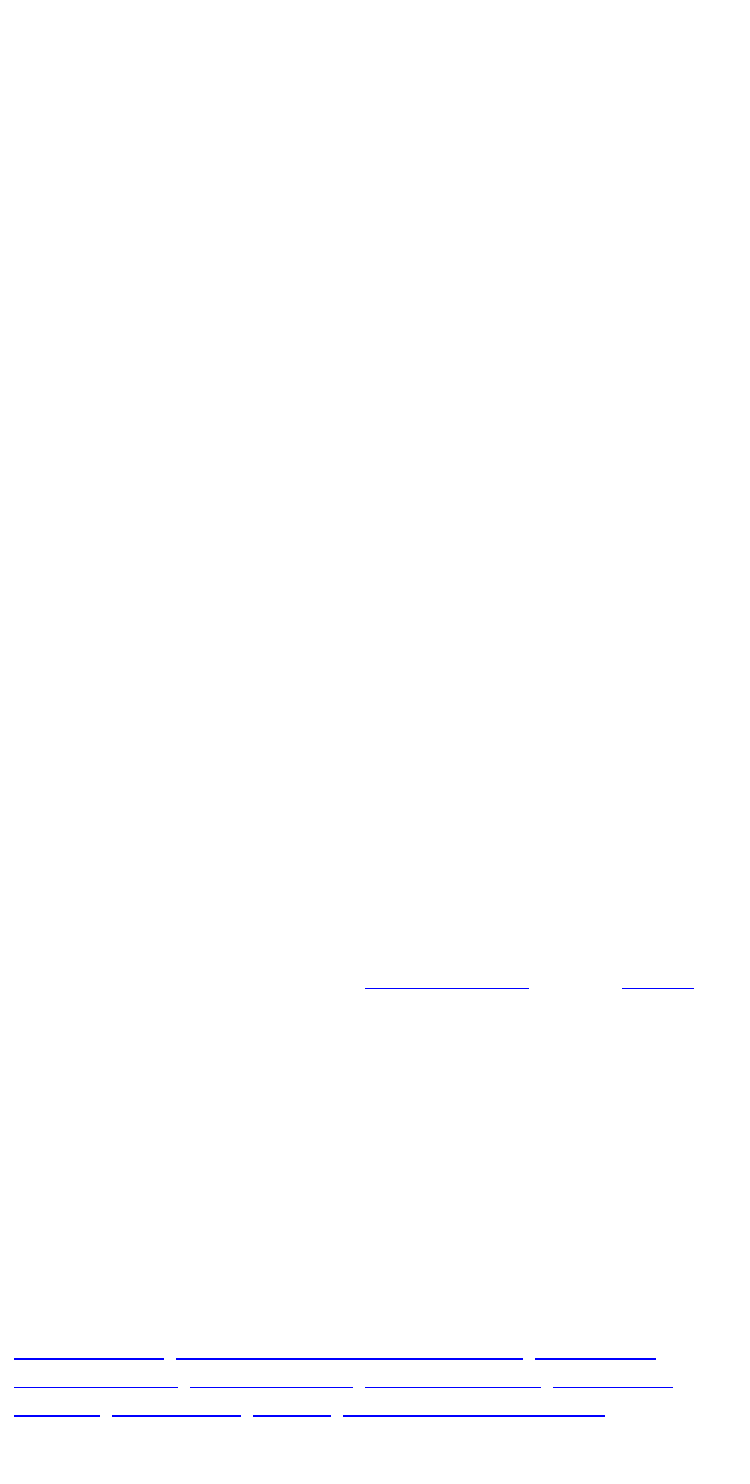
Page285
praisesthis‘foreignizing’strategyforitscontemporarypotentialto‘restrainthe
ethnocentricviolenceoftranslation…[as]astrategicculturalinterventioninthe
currentstateofworldaffairs,pitchedagainstthehegemonicEnglishlanguage
nationsandtheunequalculturalexchangesinwhichtheyengagetheirglobal
others’(Venuti1995a:20).ForVenuti,thisforeignizationtranscendsmere
literalismtobecomeamoregeneralstrategyofintervention,impingingevenon
thechoiceoftexttotranslate.Hegivestheexampleofhowforeigntextswhich
aremarginalinthetargetculturemaybetranslatedwithacanonicaldiscourse
(e.g.transparency)whileothersourcelanguagetextswhicharepartofthe
targetculturecanonmaybetranslatedwithamarginaldiscourse(e.g.
archaism):‘Inthisforeignizingpracticeoftranslation,thevalueofaforeigntext
oradiscursivestrategyiscontingentontheculturalsituationinwhichthe
translationismade’(1995a:310).
ThemannerinwhichVenutiharnessestheoppositiontostrategicendshasgiven
risetoconsiderablediscussion.Somehavecriticizedhislaxnessindefining
termsanddevelopinghisargumentstotheirconclusions(cf.Pym1996a;
Tymoczko2000a).Tymoczkofurthercriticizeshisassumptionsofauniversality
resultingfromthefluencyaffordedbydomestication–shenotesthatthe
prioritizingofdomesticationishighlyculturespecific,withmorephilological
(nondomesticating)translationpracticesbeingvalorizedinvariousnon
globalizedlanguageculturesatdifferentstagesinhistory.Thetextualandcultural
deformationoftranslatedtextsisnot,Tymoczkoasserts,theresultofparticular
translationstrategies,butratherofculturaldominanceitself(ibid.:35).In
subsequentwork,Venutihasstressed(afterBerman1984/1992,1995)that
translationinvolvesan‘inevitabledomestication’(Venuti1998b:11)andhas
focusedonthenotionofa‘minoritizing’translationmetastrategywhich
generallyaimstodefamiliarizethetargetmajoritylanguagebyoptingfornon
standarddiscoursesolutions,compensationsandinnovations(Venuti1998b;for
criticalreactionseeTymoczko2000a;Pym1999).
InkeepingwiththegeneralmovefromEQUIVALENCEbasedtoNORM
basedtheoreticalmodelsauguredbytheriseofDescriptiveTranslationStudies,
particularlyfromthe1990sonwards,thoughtonbothlocalandglobal
translationstrategieshasaimedtotakestockofsuchdevelopments,most
explicitlyperhapsintheproposalbyChestermanthatstrategiesare‘waysin
whichtranslatorsseektoconformtonorms…nottoachieveequivalence,but
simplytoarriveatthebestversiontheycanthinkof’(1997:88).Thismaywell
pointtonewresearchtrajectoriesinstrategystudiesinthefuture,trajectories
whichmaywelldemandnewcategoriesandclassificationsforcriticalreflection
ontranslationstrategies.
Seealso:
ADAPTATION;BIBLE,JEWISHANDCHRISTIAN;CULTURAL
TRANSLATION;EQUIVALENCE;EXPLICITATION;IDEOLOGY;
NORMS;REWRITING;SHIFTS;UNITOFTRANSLATION.
Furtherreading
Lörscher1991;Jääskeläinen1993;Venuti1995a;Chesterman1997;Muñoz
Martin2000;Kwieciński2001(pp.115–65);Chesterman2005.
JOHNKEARNS

Page285
praisesthis‘foreignizing’strategyforitscontemporarypotentialto‘restrainthe
ethnocentricviolenceoftranslation…[as]astrategicculturalinterventioninthe
currentstateofworldaffairs,pitchedagainstthehegemonicEnglishlanguage
nationsandtheunequalculturalexchangesinwhichtheyengagetheirglobal
others’(Venuti1995a:20).ForVenuti,thisforeignizationtranscendsmere
literalismtobecomeamoregeneralstrategyofintervention,impingingevenon
thechoiceoftexttotranslate.Hegivestheexampleofhowforeigntextswhich
aremarginalinthetargetculturemaybetranslatedwithacanonicaldiscourse
(e.g.transparency)whileothersourcelanguagetextswhicharepartofthe
targetculturecanonmaybetranslatedwithamarginaldiscourse(e.g.
archaism):‘Inthisforeignizingpracticeoftranslation,thevalueofaforeigntext
oradiscursivestrategyiscontingentontheculturalsituationinwhichthe
translationismade’(1995a:310).
ThemannerinwhichVenutiharnessestheoppositiontostrategicendshasgiven
risetoconsiderablediscussion.Somehavecriticizedhislaxnessindefining
termsanddevelopinghisargumentstotheirconclusions(cf.Pym1996a;
Tymoczko2000a).Tymoczkofurthercriticizeshisassumptionsofauniversality
resultingfromthefluencyaffordedbydomestication–shenotesthatthe
prioritizingofdomesticationishighlyculturespecific,withmorephilological
(nondomesticating)translationpracticesbeingvalorizedinvariousnon
globalizedlanguageculturesatdifferentstagesinhistory.Thetextualandcultural
deformationoftranslatedtextsisnot,Tymoczkoasserts,theresultofparticular
translationstrategies,butratherofculturaldominanceitself(ibid.:35).In
subsequentwork,Venutihasstressed(afterBerman1984/1992,1995)that
translationinvolvesan‘inevitabledomestication’(Venuti1998b:11)andhas
focusedonthenotionofa‘minoritizing’translationmetastrategywhich
generallyaimstodefamiliarizethetargetmajoritylanguagebyoptingfornon
standarddiscoursesolutions,compensationsandinnovations(Venuti1998b;for
criticalreactionseeTymoczko2000a;Pym1999).
InkeepingwiththegeneralmovefromEQUIVALENCEbasedtoNORM
basedtheoreticalmodelsauguredbytheriseofDescriptiveTranslationStudies,
particularlyfromthe1990sonwards,thoughtonbothlocalandglobal
translationstrategieshasaimedtotakestockofsuchdevelopments,most
explicitlyperhapsintheproposalbyChestermanthatstrategiesare‘waysin
whichtranslatorsseektoconformtonorms…nottoachieveequivalence,but
simplytoarriveatthebestversiontheycanthinkof’(1997:88).Thismaywell
pointtonewresearchtrajectoriesinstrategystudiesinthefuture,trajectories
whichmaywelldemandnewcategoriesandclassificationsforcriticalreflection
ontranslationstrategies.
Seealso:
ADAPTATION;BIBLE,JEWISHANDCHRISTIAN;CULTURAL
TRANSLATION;EQUIVALENCE;EXPLICITATION;IDEOLOGY;
NORMS;REWRITING;SHIFTS;UNITOFTRANSLATION.
Furtherreading
Lörscher1991;Jääskeläinen1993;Venuti1995a;Chesterman1997;Muñoz
Martin2000;Kwieciński2001(pp.115–65);Chesterman2005.
JOHNKEARNS

Page286
T
Terminology
Terminologyisconcernedwiththenamingofconceptsinspecializeddomainsof
knowledge.Thisfieldhasdevelopedrapidlysincethemiddleofthetwentieth
century,buttherehasbeenanongoingdebateastowhetherterminologycan
trulybeconsideredadiscipline.Whilesomecommentators(e.g.Jaekel2000;
Sprung2000a)considerterminologytobeadisciplineinitsownright,others,
suchasSager(1990),arguethatitstillhassomewaytogoinordertoachieve
thisstatus.AlthoughSageraffirmsthevalueofterminologyasasubjectworthy
ofstudy,herejectstheclaimthatitisanindependentdiscipline,viewingit
insteadasanumberofpractices,basedonmethodologies,thatdealwiththe
creation,collection,explicationandpresentationofterms.AccordingtoSager,
disciplinesestablishknowledgeaboutthings,whereasmethodologies,which
focusonhowtodothings,areonlyameanstoanend.ScholarssuchasSager
arguethateverythingofimportancethatcanbesaidaboutterminologyismore
appropriatelysaidinthecontextofotherdisciplines,suchaslinguistics,
informationscienceorcomputationallinguistics.Whetherornotitisconsidered
anindependentdiscipline,terminologyclearlyhasveryclosetiestootherareas
ofappliedlinguistics,includingspecializedtranslation,andwhileterminological
investigationscancertainlybecarriedoutinamonolingualsetting,oneofits
mostwidelypractisedapplicationsisinthedomainoftranslation.
Fundamentalnotions
Therearethreekeynotionsassociatedwithterminology,namelyconcept,
definitionandterm.Essentially,conceptsareunitsofthoughtthatareusedto
organizeourknowledgeandperceptionsoftheworldaroundus.Moreover,we
tendtounderstandconceptsnotinisolationbutratherinrelationtoother
concepts,inastructuredsystem(Wright1997).
Onceithasbeenidentified,itisnecessarytodefineaconcept.Thisdefinitionis
whatprovidesabridgebetweentheconceptandthetermthatisusedto
designateit(deBessé1997).Aterminologicaldefinitionmustbeasdetailedas
isnecessarytodifferentiateaconceptanditsassociatedtermfromother
concepttermunits.
Termsarethelinguisticdesignationsassignedtoconcepts.Becauseterminology
dealswithspecializeddomainsofknowledge,termsrefertothediscrete
conceptualentities,properties,activitiesorrelationsthatconstituteknowledgein
aparticulardomain.Ideally,then,behindeachtermthereshouldbeaclearly
definedconceptwhichissystematicallyrelatedtotheotherconceptsthatmake
uptheknowledgestructureofthedomain.Moreover,thechoiceoftheterm
shouldreflectthisconcepteffectivelyandtheformofthetermshouldbe
generallyacceptablewithinthelanguageinquestion(Sager1997).
Theoriesofterminology
Concepts,definitionsandtermsprovidethefoundationforatheoryof
terminology.Knowledgeoftheoriesofterminologyisimportantfortranslators
becausetheywillneedtoapplyitinordertocarryouttaskssuchasdetermining
relationshipsbetweenconcepts,dealingwithinstanceswhereconceptsare
similarratherthanidentical,creatingtargetlanguagetermsfornewconceptsand
findingtermsthatcorrespondtothesameconceptintwolanguages,which
sometimesinvolves
